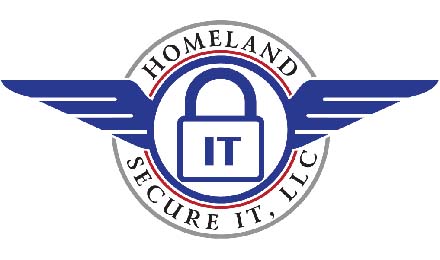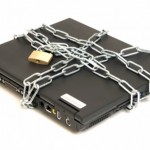Every computer service and support company in the world just waits in the wings for headlines like this one from today on GreenvilleOnline.com: “Missing laptop may compromise Oconee Heart Center Patients’ data“. It’s not because we revel in the suffering of others, but because it underscores the importance of the message that computer techs preach over and over “secure your data”, and I guess, some jump on the “I told you so!” bandwagon too.
When it happens to an Upstate based organization, the message does reach the TV screens, radios and computers of the clients that Homeland Secure IT provides service to, or at least our general service area, so a phone call or email from a concerned PC owner is inevitable as the level of concern increases (at least for the duration of the press coverage).
Some people believe it can never happen to them, that the owners of the missing computer were incompetent and they are so much smarter, or that if a computer of theirs were to be lost or stolen, there is nothing on it that is of value. And still others believe that they have taken every precaution needed to insure the security of their data.
When we talk with these people, most often, they have overlooked something. For instance, a person will assume that because they backup their data to a flash drive, that if the computer were stolen, they would still have that data. What if the flash drive is in the case of the notebook, or still connected to the PC if it is a desktop workstation? Gone.
Others feel they have nothing important on their computers and totally forget about cached information which may have their credit card numbers, social security numbers, or worse, the information of others.
More often than not, we will encounter a person in the medical or legal field who has very sensitive information, and carry it around on a notebook computer, but they have done nothing to protect the data.
Here are some things that you can do to protect yourself:
Set a BIOS password on your PC, this requires someone to enter a password just to get the OS loaded up. This can be bypassed by resetting the BIOS as we just did in our shop today on a notebook, but an unsavvy thief may not know that.
Set a login password for your computer – sure, the drive can be pulled and read in another computer, or a password cracking tool can be used to bypass that login, but again, a casual criminal may not have the know how, or the inclination and may just opt to reinstall a new operating system so the computer can be sold for a quick buck.
Encryption – This is an awesome option for most people. You can opt to encrypt files using the encryption features of Microsoft Office (This can be bypassed with a 25 dollar tool bought online), or entire folders, or even the entire hard drive of your computer. Software exists to accomplish this, and some operating systems have the functionality built-in. Disk encryption is going to offer one of the highest layers of security you can get.
Backup – This does not prevent your data from being stolen, but it does allow you to have access to it in the event your computer were to be lost or stolen. Backup comes in many flavors, from a physical backup to a flash drive or USB hard drive, to the awesome online backup solutions that exist. We are a big proponent of Servosity online data backup because it is secure /encrypted, trouble free, and totally hands-off, so you don’t have to remember to perform a backup. (Ask us about a FREE TRIAL!) – Whatever you use, make sure that the media you backup to is either online or if it is physical, not actually WITH the PC you wish to protect.
Security Locks – If you leave your PC unattended on a desk, a simple Kensington style lock can prevent it from (easily) being walked off with. These are inexpensive, and easy to use and transport.
LoJack for Laptops – LoJack is a great service that runs silently on your computer, and in the event of a theft, should that computer be plugged into the internet and powered on, LoJack can work with authorities to possibly recover your computer by tracing the IP address. They reportedly have a success rate that tends to support the minimal cost of the subscription.
Insurance – Did you know your PC may not be covered by your homeowners’s insurance? If it is a work computer, your employer COULD expect you to pay for it, but your homeowner insurance company may take a different view since you did not purchase the computer and thus do not own it. You can get a rider to insure just about anything – so check with your insurance company.
These are just a few of the many solutions that can help secure your equipment and the important data that resides on it. No one solution covers you 100% obviously, but when you start combining them, it gets increasingly difficult for the criminal. And don’t think this stops with notebooks. Theft of computers is at an all-time high. Entire servers are stolen! What a scary thought!?!
Do you think you are exempt for some reason? If you are dealing with medical or financial records at all, please be advised that there are laws that mandate you protect yourself and your company from data loss/theft – SEEK A PROFESSIONAL for advice!
One last thing, if you doubt for a second that your network, computers and data is secure, whether from physical loss or theft, from hackers penetrating your defenses, or for compliance with various laws and guidelines, then call a professional! Many IT companies offer a free consultation, and Homeland Secure IT is no exception. Even if you or your network administrator is extremely well versed in computer security, a second set of eyes never hurts! Call us if we can be of any assistance… 864-990-4748

